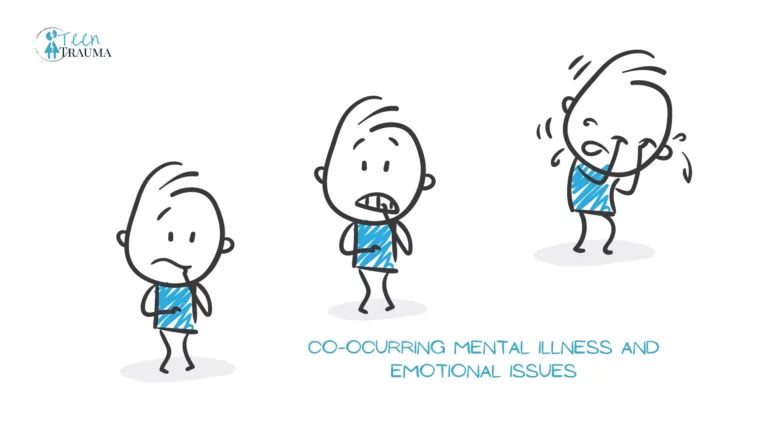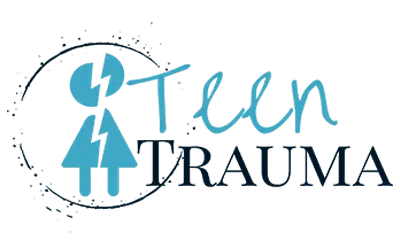What is Abandonment Trauma?
Everybody has read stories about so-called “feral” children who somehow survived alone in remote areas of the world. When discovered, these children could not speak, presented minimal development of emotions beyond fear and distrust, and resisted psychological and life skills therapy.
Even severely neglected children who have had the least possible interaction with adults exhibit similar signs of abandonment trauma in the absence of human attention, nurturing, and language.
A massive number of studies have shown that a lack of child-parent bonding is associated with the development of mental health problems in adolescence and adulthood.
Whether the child never established a bond with a caregiver or the caregiver they did establish a bond with abandoned them in childhood, the psychosocial consequences impacting the child often involve symptoms of abandonment trauma.
Examples of how a teenager may experience signs of severe neglect and abandonment issues include:
- The primary caregiver is a substance abuser or someone with severe psychiatric disorders who cannot properly care for the child.
- Divorce forces a parent to move far away from the child
- Death of a parent, relative, or caregiver whom the child depends on for love and care
- Being shuttled from one foster home to another because a parent put the child up for adoption
Trauma spectrum disorders (TSD) encompass disorders like abandonment trauma, borderline personality disorder (BPD), dissociative identity disorder (DID), and posttraumatic stress disorder (PTSD).
The trauma spectrum model predicts that children who feel “abandoned” (i.e., suffer extreme emotional and physical neglect), are under such intense stress that the brain eventually sustains permanent neurological deficits.
Imaging scans of teens and adults diagnosed with abandonment trauma have found their amygdalas and hippocampuses to be dysfunctional due to being smaller than average.
What Causes Abandonment Issues?
Children are completely dependent on their parents for all their physical and emotional needs. From the first day an infant is brought home from the hospital until they are older adolescents, children need to feel loved, safe, nurtured, and supported by at least one caregiver with whom they have bonded.
Kids who have been abandoned by caregivers grow up feeling unloved, unsafe, and mistrustful of anyone who tries to help them. They have no self-esteem, no strong sense of self, and do not think they are “worthy” of being loved. Many adopted children may have the benefit of being permanently welcomed by a warm, loving family but will still suffer from signs of abandonment issues that require lifelong psychological treatment.
Without professional help and the unconditional love and support from another caregiver or adoptive parent, children dealing with emotional abandonment problems mature into adults with a trauma spectrum disorder. An adult with BPD, DID, or PTSD is usually:
- Afraid of committing themselves fully to a relationship
- Codependent on someone who emotionally or physically abuses them
- Eager to please everyone to avoid feeling rejected
- Needy and insecure in both platonic and intimate relationships
- Manipulative and controlling
- Demands constant reassurances from partners that they are loved
Adults lacking self-esteem due to abandonment trauma will engage in a vicious cycle of self-fulfilling prophecy as their neediness, emotional instability, and manipulative methods to control others actually push away the attention and companionship they so desperately crave.
Is There a Link Between the Fear of Abandonment and PTSD?
When we think of someone with PTSD, we usually think of Afghanistan or Gulf War veterans first. Individuals who have survived a terrible natural disaster or fled war-torn countries also experience PTSD at various levels of severity.
Although people with PTSD may not have experienced abandonment as a child, they still share many signs of abandonment issues with victims of abandonment trauma. Psychological issues shared by those with PTSD or abandonment trauma include:
- Intense feelings of fear, anxiety, and insecurity that interfere with establishing meaningful relationships
- Difficulty trusting anyone to have positive intentions
- Unconsciously sabotaging their lives when things seem to be going well (pattern of self-defeating behaviors)
- Complete or partial memory blocks of portions of their childhood
- Emotional detachment, feeling disassociated from others and themselves
- Episodes of self-destructive behavior (cutting, binge drinking)
- Hypersensitivity to perceived criticism or rejection
- Acting impulsively without thinking about making a potentially bad decision that causes far-reaching consequences
Teens with abandonment trauma are almost always diagnosed with a co-occurring mental illness, such as borderline personality disorder, major depression, attachment anxiety, and dissociative identity disorder. Alternately, it is rare that teens presenting signs of abandonment issues are ever diagnosed with schizophrenia or other serious mental illness.

How to Help a Teen with Emotional Abandonment Issues
The first choice of treatment for teens with signs of abandonment issues and pediatric PTSD is cognitive-behavioral therapy (CBT). There is little clinical data available that shows medications can treat abandonment trauma in children and teens. Studies indicate that pharmacotherapy is not curative and symptom reduction is achieved more by providing CBT, affect regulation training and play therapy for young children.
The ability for teens to share their feelings about the emotional impact of abandonment is one of the most important steps toward learning to cope with abandonment issues. Teachers should also be informed of a student’s abandonment trauma so they can gradually get the child back into daily routines that provide a sense of safety and security for the child.
Other ways to support teens while they are in therapy for abandonment trauma include:
- Discuss the meaning and context behind their reactions to abandonment trauma. Never avoid talking to the teen about negative feelings or their thoughts about the trauma.
- Talk about the positive impact of abandonment on their life. Ask questions like “how do you think your experiences will help you grow as a person?” or “what have your experiences taught you about your own emotional strengths?”
- Help them understand the importance of proactive coping when dealing with the stress of abandonment trauma. Encourage teens to learn a variety of calming techniques such as meditation, deep breathing, and journaling.
- Explain that recovering from abandonment issues is a lifelong process that won’t happen overnight. Clarify how CBT and counseling work to provide insight and emotional reinforcement on a daily basis. Point out that the purpose of therapy is not to help them forget about the trauma but to accept that it did happen and determine how they can best cope with past events that cannot be erased from memory.
- Offer assistance with developing a plan for identifying problematic times when they feel overwhelmed with intense emotions, thoughts, or flashbacks they can’t control. Learning to recognize these feelings as soon as they begin to emerge and applying coping skills is essential for dealing constructively with abandonment trauma.
For more information about helping a child who is experiencing signs of abandonment issues, please contact us today to speak to a staff member.
Resources:
Write for us
Are you a trauma survivor, an expert in child or treen trauma, a psychologist, teacher, counselor, advocate, or thought leader? Think you’ve got a fresh perspective that will help our audience?
We’re always looking for authors who can deliver high-quality articles and blog posts. Writing for us will expose you to a whole new audience and help establish you as an expert in this field.










